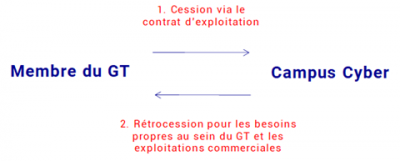« Licences/en » : différence entre les versions
Page créée avec « For commons published under an open license, the governance associated with the commons will assign the rights to Campus Cyber, which will apply the license selected for distribution. centré|vignette|450x450px » |
Page créée avec « In the case of reciprocal commons, the governance of the commons will assign the rights to the Cyber Campus, which will then retrocede the rights to the members identified by the governance. centré|vignette|400x400px » |
||
| Ligne 59 : | Ligne 59 : | ||
[[Fichier:Cycle.png|centré|vignette|450x450px]] | [[Fichier:Cycle.png|centré|vignette|450x450px]] | ||
In the case of reciprocal commons, the governance of the commons will assign the rights to the Cyber Campus, which will then retrocede the rights to the members identified by the governance. | |||
[[Fichier:Droits.png|centré|vignette|400x400px]] | [[Fichier:Droits.png|centré|vignette|400x400px]] | ||
<div lang="fr" dir="ltr" class="mw-content-ltr"> | <div lang="fr" dir="ltr" class="mw-content-ltr"> | ||
Version du 13 septembre 2023 à 10:55
Legal framework for commons
To ensure that the production of the commons runs smoothly, the Studio des Communs has provided a legal environment enabling all its members to deal transparently with intellectual property. This approach is in line with the Studio's desire to establish a discussion and governance adapted to each production.
Given the potential business impact of the productions, the Studio des Communs has validated that the activities of the working groups meet the European criteria for exemption from cartel law, and are therefore not prohibited. As a reminder, a cartel refers to an agreement or concerted action that has the effect of preventing, restricting or distorting competition on a given product or service market.
The Studio des Communs provides framework agreements that define the governance, licensing and business model for each common.
The provisions of the SRI 2 directive
Although this does not directly concern R&D activities, it is important to note the provisions of the European Union, which takes a positive view of cooperation between companies in the field of cybersecurity.
Indeed, the exchange of information within structures such as Campus Cyber is now subject to specific provisions set out in the European cybersecurity directive NIS II, which encourages companies to collaborate by sharing cybersecurity information. Such provisions will notably govern activities orchestrated by Campus Cyber whose purpose is the creation of data.
Agreement and exemption for R&D activities
Generally speaking, the issue at stake is to determine the applicability of European antitrust law, as defined by the TFEU, to collaborative activities governed by the Studio des Communs, and the possible exemption they could benefit from under this same legal framework.
The relevant reference market for the research and development activities of Campus Cyber members is the global market for cybersecurity solutions, representing worldwide sales of $150.4 billion by 2021.
Within this market, the activities of the members of the Studio des Communs de la cyber are in fact subject to the application of European antitrust law, according to the three criteria defined by Article 101 §1 of the Treaty on the Functioning of the European Union.
However, the agreement between the members of Campus Cyber should not be considered a prohibited agreement. In fact, it is a collaboration between companies whose aim is to carry out R&D-related activities together, a situation permitted under European antitrust law. Accordingly, the Studio des Communs has defined a framework contract, to be concluded between members, complying with the conditions laid down in EU exemption regulation 1227-2010.
The Cyber Campus could also benefit from Article 101 §3 of the TFEU, which offers the possibility of a general exemption based on contribution to economic progress.
Legal organisation of working groups
Legal framework for Working Groups
Within the Working Groups themselves, there are two situations to which the two distinct legal frameworks we mentioned earlier apply;
| Collaboration for software development | Collaboration for data creation | |
|---|---|---|
| Legal framework : R&D exemption regulation | Legal frameork : directive SRI II | |
| Constraints : strict rules on the duration of agreements (7years), freedom to exploit resultats and access to other members' prior knowledge | Constraints : none, apart from an obligation on very large companies to notify their participation to tge competition authorities |
Cooperation and operating agreement
Depending on the nature of the productions, the Working Groups will be able to draw on a legal framework structured in two stages;
- Cooperation agreement: Defines the terms of cooperation, confidentiality and the absence of transfer of intellectual property.
- Operating Agreement: Defines financing, governance, production and distribution procedures
These two agreements will be concluded between the members of the working group at two separate times, providing a framework for the production of the work: - The cooperation agreement when the WG was set up - End-of-cycle exploitation agreement for the deliverable, at the time of distribution.
General principles of intellectual property management
For commons published under an open license, the governance associated with the commons will assign the rights to Campus Cyber, which will apply the license selected for distribution.

In the case of reciprocal commons, the governance of the commons will assign the rights to the Cyber Campus, which will then retrocede the rights to the members identified by the governance.

